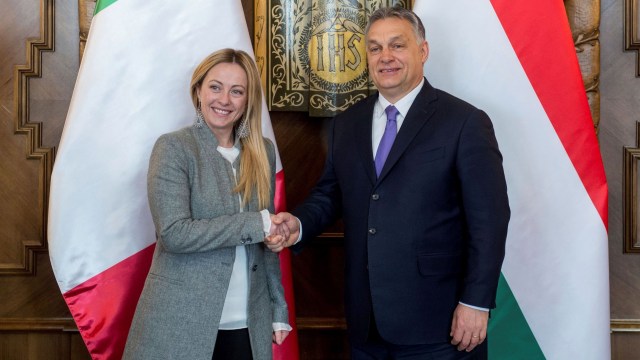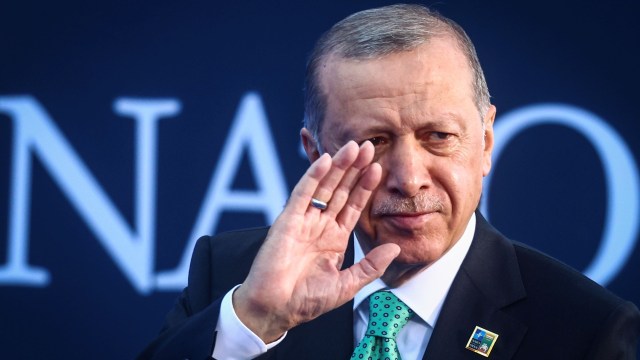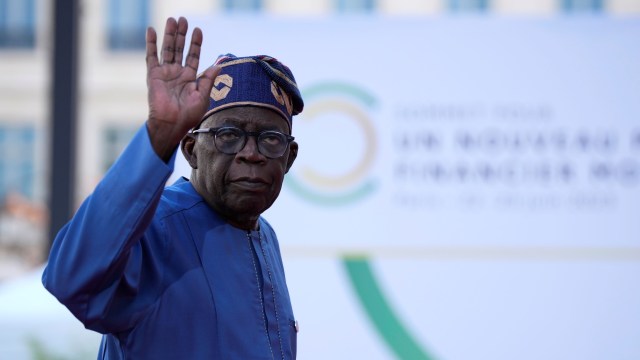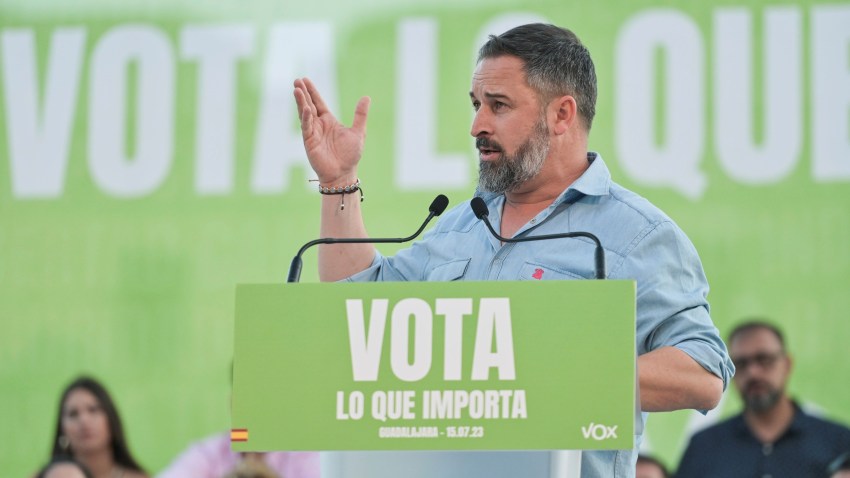Today at WPR, we’re covering potential fault lines in Europe’s far-right movements and Slovakia’s upcoming elections this weekend.
But first, here’s our take on today’s top story:
Spain: Conservative leader Alberto Nunez Feijoo failed today to secure enough votes in Spain’s lower house to become prime minister, a little more than two months after Feijoo’s People’s Party, or PP, won the most seats in an inconclusive election in July. (Reuters)
Our Take: The fact that the right-wing coalition made up of PP and the far-right Vox party failed to gain enough additional backing among lawmakers to get Feijoo’s bid over the line suggests that acting PM Pedro Sanchez’s gamble in calling for snap elections earlier this year has paid off—at least when it comes to keeping Feijoo out of the prime minister’s office.
Get the Daily Review sent straight to your inbox every weekday.
Following regional elections in May that saw a surge in support for the PP and Vox, Sanchez bet that the specter of a national government that includes Vox would deter Spaniards from voting for a conservative majority. Vox is, after all, the most extreme of Spain’s national parties, and it pledged before the election to ban abortion, effectively dismantle Spain’s federal system and sweep away 20 years of progressive legislation on LGBTQ+ rights and gender equality.
Feijoo will get one more attempt to become PM on Friday, which will likely fail as well. After that, Sanchez will get his chance, though his bid is also a long shot, as it requires tacit support from a handful of regional nationalist parties. Sanchez has already met some of their demands, but has so far stopped short of one party’s ultimatum: amnesty for the separatist leaders who staged an illegal independence referendum in Catalonia in 2017.
But as Alexander Clarkson wrote in a column last week, the fact that Sanchez is even in this position is a testament to his willingness to pursue high-risk gambits with confidence in his party.


Europe’s Far-Right ‘Movement’ Is Full of Internal Fault Lines
In many respects, Italian PM Giorgia Meloni and Hungarian PM Viktor Orban are ideological and political allies. And yet, the Italian government’s official readout of their recent meeting in Budapest points to a potential fault line between the two far-right leaders.
In fact, as columnist Alexander Clarkson writes, although recent far-right victories in Europe have reinforced a widespread tendency to view far-right movements as a homogeneous force, a closer look at differences between them can provide a more effective basis for containing the threat they might pose to stability and democracy.
In Slovakia, Fico’s Return Has Europe—and Ukraine—on Edge
Meanwhile, Andrew MacDowall previews Slovakia’s upcoming parliamentary elections on Sept. 30, which Robert Fico—a highly controversial three-time former PM who opposes military support to Ukraine and echoes Russian arguments on the war—looks set to win. Fico has pledged to reverse the EU and NATO member state’s political direction, after years of deep reforms designed to realign Slovakia with the EU mainstream.


We want to hear your take on the issues we cover. We’ll select one person from those who answer the question below to receive a free one-month extension of their WPR subscription.
This week’s question: China’s economic troubles have been all over the news these past few months. Not only has its long-awaited post-pandemic recovery not materialized, but its economy is now slowing rapidly after decades of astounding growth.
In your opinion, does this mean that China’s rise has peaked?
For more context:
- Michael Pettis on the effect of China’s slowing economic growth on the global economy.
- Mary Gallagher on how income and wealth inequality have increased under Xi Jinping’s leadership.

Turkish President Recep Tayyip Erdogan said Tuesday that the Turkish parliament would approve Sweden’s bid to join NATO if the U.S. allows Turkey to purchase F-16 fighter jets and related technology. After blocking Sweden’s bid—which requires approval from all alliance members—for months, Erdogan seemed to give way this summer at the annual NATO summit, with conditions.
Since winning reelection in May, Erdogan has more broadly pursued a conciliatory foreign policy akin to his first decade in power from 2003 to 2013. As Borzou Daragahi wrote in July, however, Erdogan’s foreign policy moves almost always have a domestic angle.

Erdogan’s Foreign Policy Pivot Is All About Domestic Politics
July 24, 2023 | Turkish President Erdogan’s foreign policy moves almost always have a domestic politics angle. His pivot back to the West is no exception. Read more.
Two unions representing hundreds of thousands of Nigeria’s government workers said they will go on strike starting next week to demand pay raises and to protest austerity measures put in place by the newly elected government of Nigerian President Bola Tinubu.
Tinubu campaigned for the presidency amid stagnant economic growth, a double-digit unemployment rate, worsening poverty levels, high inflation, food insecurity and a weak currency. Upon taking office, he quickly implemented economic reforms designed to address these issues.
As Chris O. Ògúnmọ́dẹdé wrote earlier this month, however, those reforms have so far only added to Nigerians’ economic hardships.
Nigeria’s Tinubu Has Made Plenty of Waves, but Little Progress
Sept. 8, 2023 | After 100 days in office, Nigeria’s President Bola Tinubu has demonstrated an impulsive, top-down approach to governance. Read more.

More From WPR
- Charli Carpenter on Ukraine’s human rights record.
- Michael Rossi on U.S. relations with Central Asia.
- James Bosworth on AMLO’s foreign policy in Mexico.
- Mohammed Soliman on an ambitious new trade corridor project.

